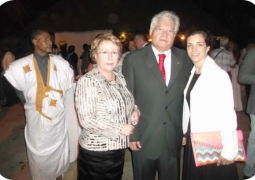“Devote yourselves to prayer, being watchful and thankful. And pray for us, too, that God may open doors for our message, so that we may proclaim the mystery of Christ, for which I am in chains.” (Colossians 4:2)
This time around, Paul is asking Colossian Christians to pray for them so that God would open doors that would enable them win souls for Christ. There is power in prayer. When we pray with a common purpose, God hears us. The Bible teaches that whenever several people agree to pray on a particular subject, the power of God is manifested. “Again, I tell you that if two of you on earth agree about anything you ask for, it will be done for you by my Father in heaven. For where two or three come together in my name, there am I with them.” (Matthew 18:19-20)
How to prayer for others (Colossians 1:9-14)
Praying for others does not require special skills since basically praying is talking to God. We can talk to God on behalf of others because we have a special burden in our hearts for their well-being, particularly their spiritual well-being. Paul was concerned that the vogue of acquiring knowledge for knowledge sake was hampering the work of the church.
He felt there was a need to intercede for them. “We have not stopped praying for you and asking God to fill you with the knowledge of His will through spiritual wisdom and understanding.”
Paul prays for wisdom and knowledge, - attributes of God – that he wanted Colossian Christians to be imbued with it. Wisdom and knowledge enable us to operate in the spiritual realm and do open our eyes to the desire to function in a manner that is pleasing to God. We cannot approach the Word of God with just human knowledge and wisdom; they merely cloud and limit our understanding because it means we shall be totally on a different plane. People who read the Bible without spiritual eyes fail to delve into the deeper things it addresses that human knowledge cannot either comprehend or fathom. Most of the time they read it like one would a storybook and thus miss out on the spiritual truths.
Paul continued: “And we pray this in order that you may live a life worthy of the Lord and may please Him in every way: bearing fruit in every good work, growing in the knowledge of God, being strengthened with all power according to His glorious might so that you may have great endurance and patience, and joyfully giving thanks to the Father, who has qualified you to share in the inheritance of the saints in the kingdom of light.” Knowledge is not merely to be accumulated; it becomes a prescription for living from whence the fruits become evident. The knowledge of God is not the property of a few but is made accessible to all.
It is not common for us to pray in these terms for the people we love but for the people we shepherd. In so doing we prepare and provide them with the tools for living better lives centered on Christ, our Guide.
Is failing to pray for others a sin?
Should our spiritual leaders pray for us? Would it be a crime if they didn’t? I believe every spiritual leader, who rightly endorses the mantle of leadership should pray for his/her flock.
The people all said to Samuel, “Pray to the Lord your God for your servants so that we may not die, for we have added to all our other sins the evil of asking for a king.” (1 Samuel 12:19) Samuel’s response to that request was that it was an obligation. “As for me, far be it from me that I should sin against the Lord by failing to pray for you.” (verse 23)
I am not sure whether pastors of small churches know each member of their congregation by name and whether they do find time to pray for them individually everyday. Samuel said he would be committing sin if he did not intercede for the people of
Loving others like we do ourselves, praying for our enemies are far from ordinary gestures required of a Christian. It is an obligation if we must abide by the new commandment of Christ. “A new commandment I give you: Love one another. As I have loved you, so you must love one another.” (John 13:34)
Persistent prayer (Luke 11:5-8)
Our Lord Jesus gave an example of persistent prayer to explain what it meant to never give up when we pray. When we knock at God’s doors constantly and relentlessly we end up gaining His attention and getting results.
Suppose a friend of yours receives a visitor (who had travelled from afar) at midnight and has nothing in his store to fix him a meal decided to knock on your door for help for just three loaves of bread, would you say to him? “Don’t bother me.
The door is already locked, and my children are with me in bed. I can’t get up and give you anything.“ (Luke 11:7) If initially you wouldn’t pay him any heed, because of his insistence and boldness you would finally get up and address his needs.
Then our Lord Jesus added: “Ask and it will be given to you; seek and you will find; knock and the door will be opened to you. For everyone who asks receives; he who seeks finds; and to him who knocks, the door will be opened.” (Luke 11:9-10)
If it is something you need badly, - from whatever source - don’t just ask once and turn your back. Continue asking with persistence. It works with God also.





